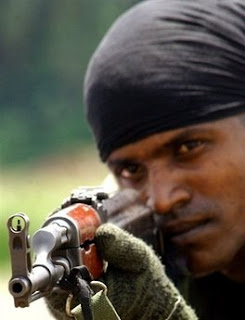(By Walter Jayawardhana)
Expressing its assertion against the Western opinion that the Sri Lankan war should be suspended, for the sake of trapped civilians, in a leading article, the Wall Street Journal said, among the few options Colombo is having the worst would be to stop the war now.
The leading article said, "The danger is that any let-up in the assault will give the Tigers time to regroup, thus extending the conflict and the civilian suffering even longer."
The editorial further said, ". A reminder of the danger the Tigers still can pose came with Friday's kamikaze aerial attack on Colombo with two small planes. That attack also casts doubt on the sincerity of the request for a cease-fire the Tigers issued Monday, especially since that proposal didn't include a promise to lay down their arms."
The Wall Street Journal further pointed out that the Tamil Tigers cannot be trusted to honour any of the promises they make as history would show: "Nor is there any guarantee the Tigers would honor a break in the fighting, let alone allow the civilians to leave. The last time a formal cease-fire was negotiated, in 2002, the Tigers spent the following four years violating it frequently. Tiger leaders must also be keenly aware that their human shields are their last remaining "defense" against a Sri Lankan army better equipped and trained than any in the country's modern history."
In no uncertain terms the newspaper argued: "The civil war has come at a high cost in Sri Lankan blood and treasure, a cost that may grow as this offensive reaches its conclusion. But the cost of stepping back from the fight would be higher still."
[ www.defence.lk ]
Strangely however, Sri Lankans are yet to make a comprehensive declaration of their opinions on whether or not the present humanitarian operations should continue. It is without any doubt that the vast majority of Sri Lankans overwhelmingly support the government's military initiative to eradicate Tamil tiger terrorism.



